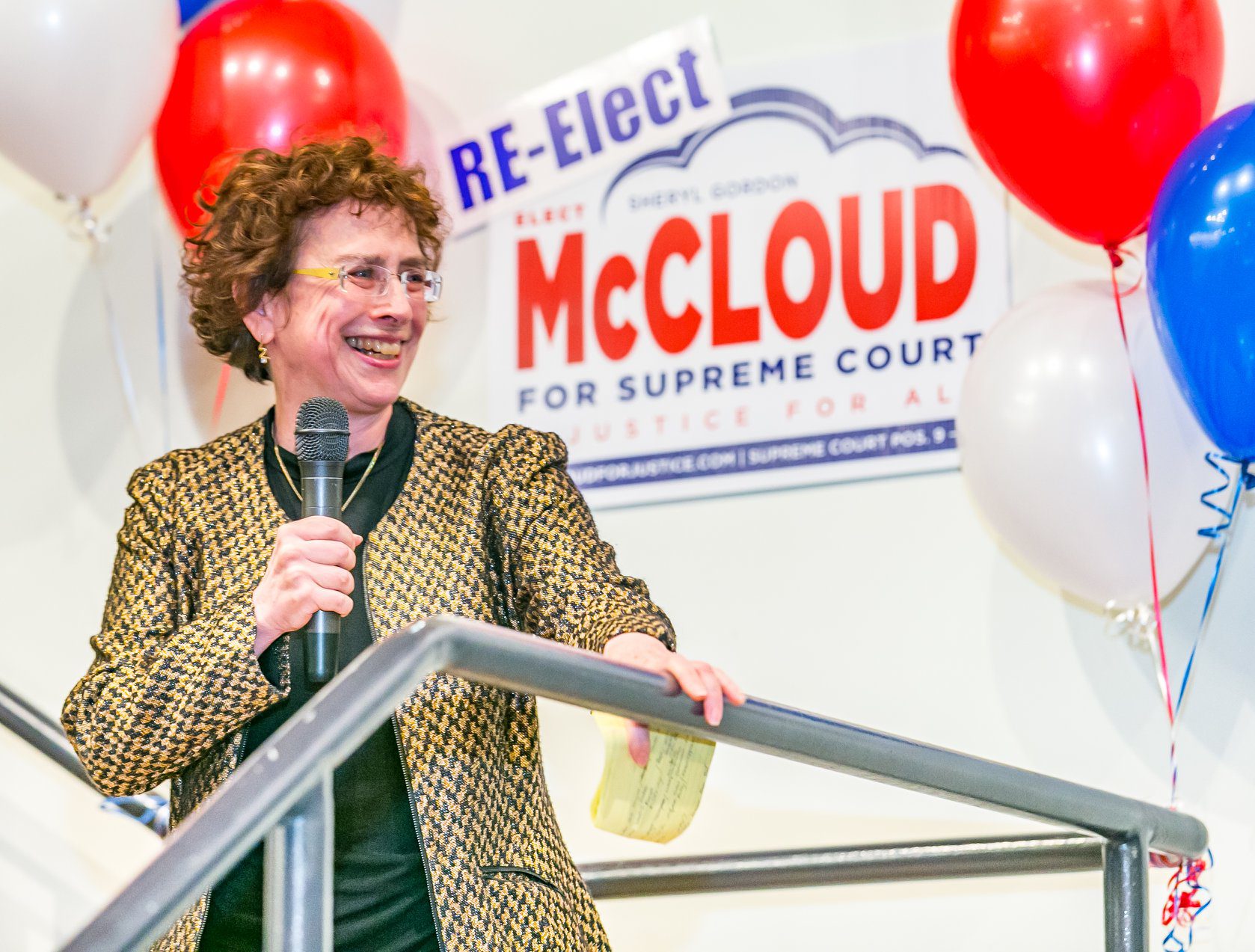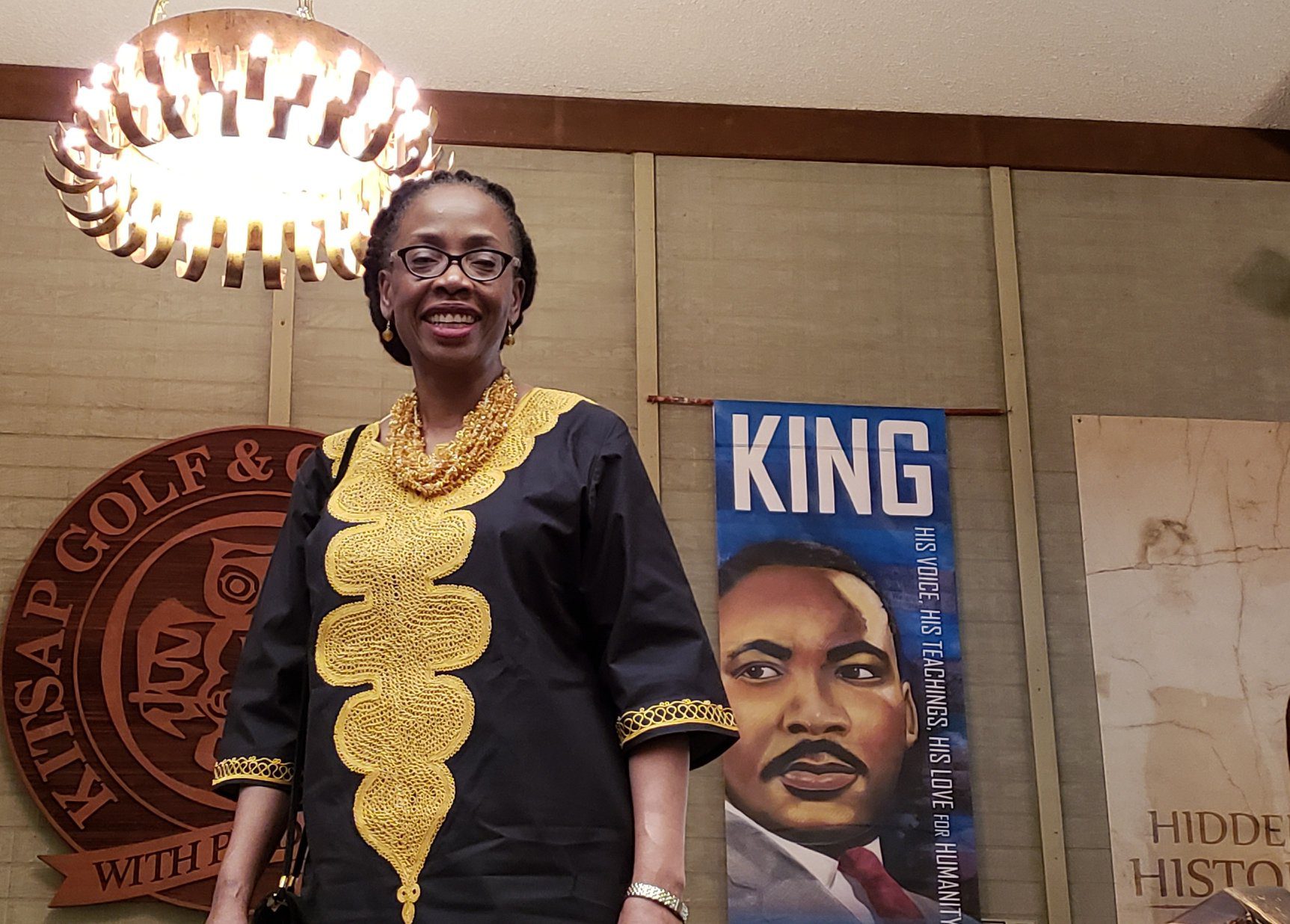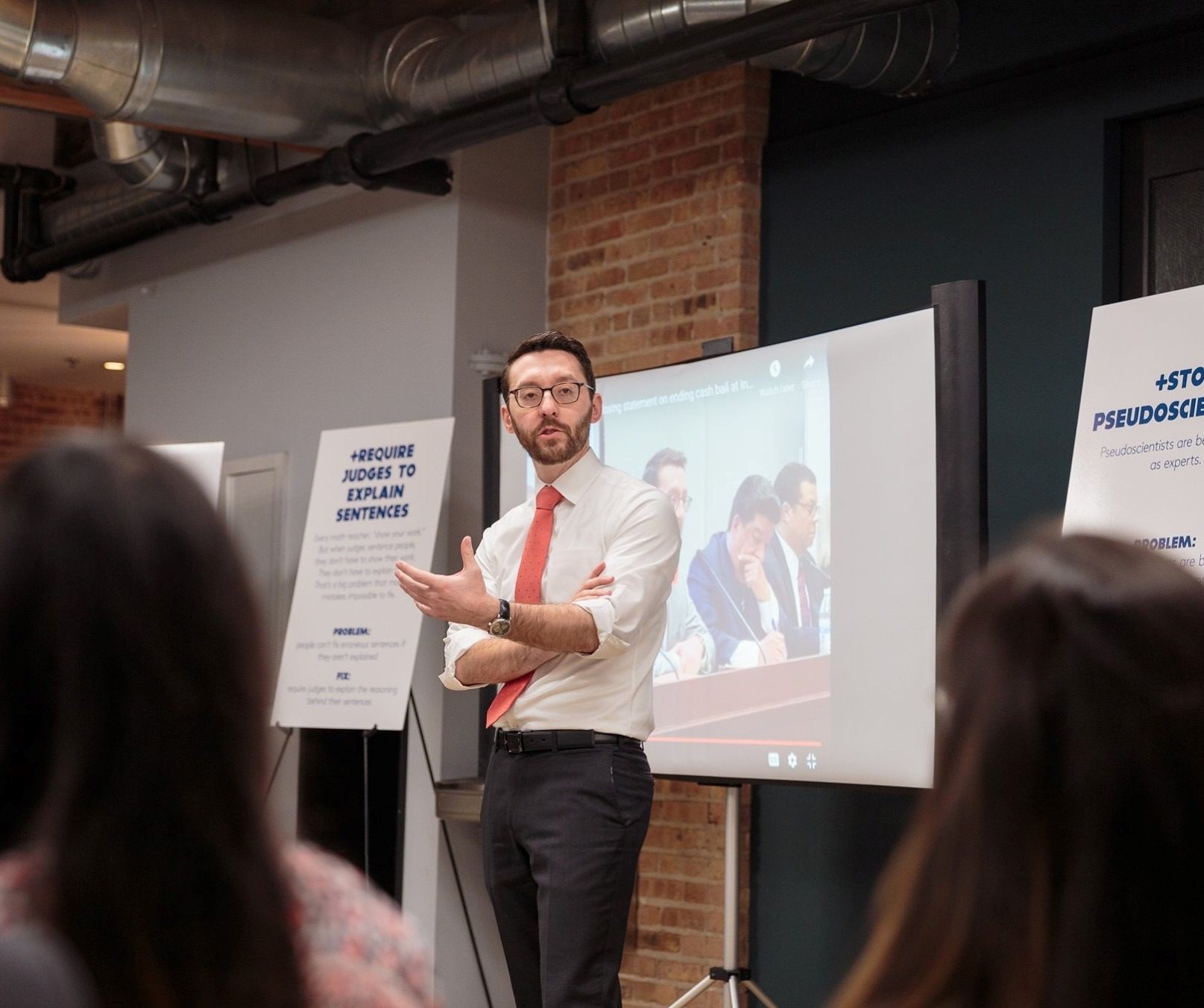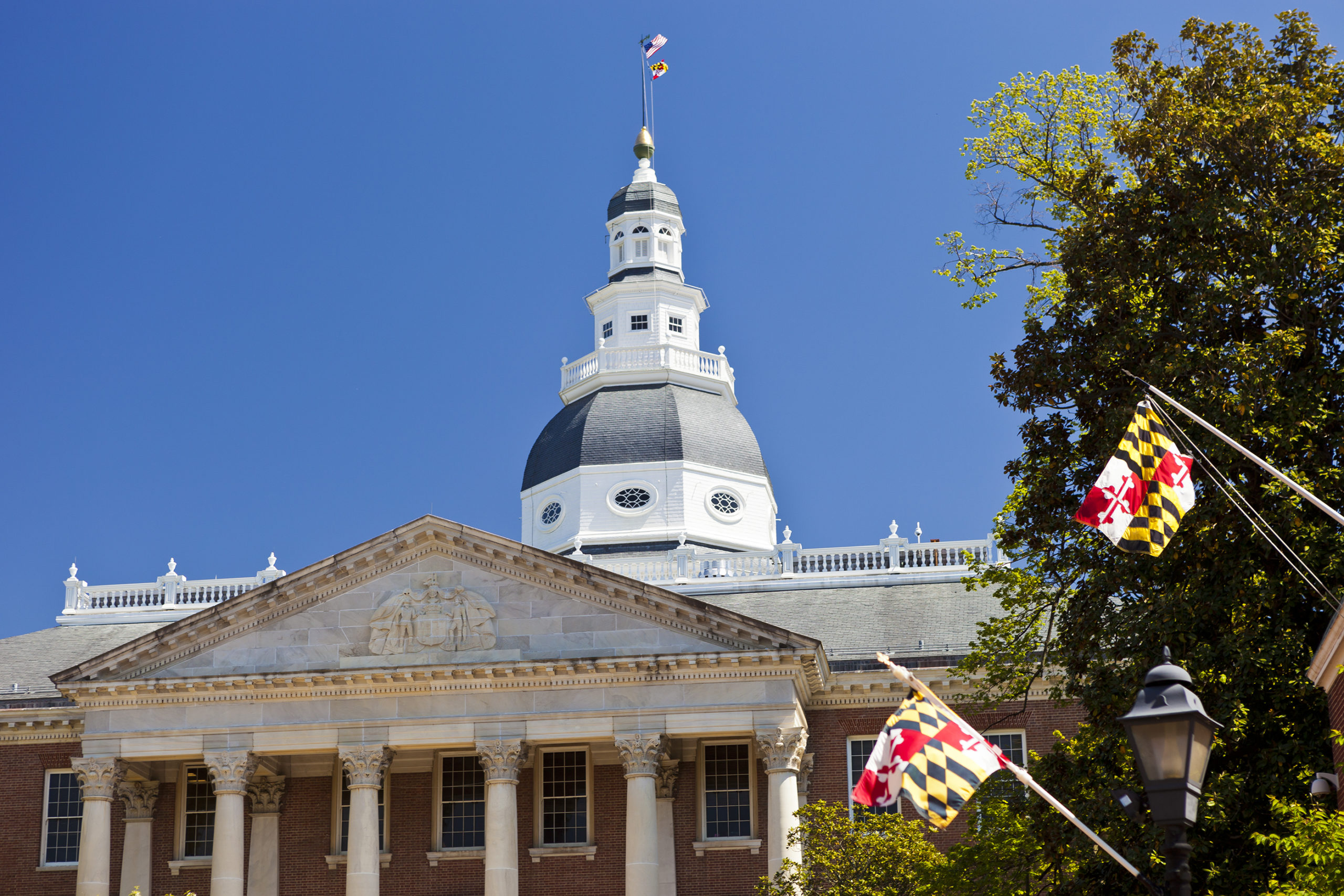Landmark Rulings Show ‘Untapped Potential’ of State Courts To Advance Civil Rights
An emboldened progressive majority on Washington State’s highest court struck down a law that criminalized drug possession and expanded restrictions on life without parole.
Daniel Nichanian | March 17, 2021


This article originally appeared on The Appeal, which hosted The Political Report project.
By thoroughly reshaping the nation’s courts, former President Donald Trump has threatened federal protections of civil rights, even on issues that have seen recent gains, such as youth sentencing. When the U.S. Supreme Court restricted the practice of sentencing minors to life without the possibility of parole in the early 2010s, its rulings came in at 5-4 and 6-3 majorities. Two of the justices in those majorities, Anthony Kennedy and Ruth Bader Ginsburg, have since been replaced by more conservative judges, and the Court could well overturn those precedents in the future.
Washington State is now presenting a blueprint for how progressives can shield themselves and even amp up civil rights protections beyond what federal courts are willing to extend.
Its state Supreme Court last week issued a landmark ruling that bars mandatory sentences of life without parole for anyone under the age of 21. This decision is a judicial milestone in moving past the cutoff age of 18 that the U.S. Supreme Court established in its federal rulings.
That decision came on the heels of another sweeping ruling, issued two weeks earlier, that struck down the state’s statutes criminalizing drug possession. The wide scope of the drug possession decision stunned even reform advocates who hoped for a favorable ruling. It has made drug possession effectively legal in the state, retroactively; the ruling is now forcing state and local officials to cease arrests, drop ongoing cases, and vacate old convictions.
For people who are wary of the federal judiciary’s rightward turn, these decisions may signal a path forward.
The Washington Supreme Court grounded its two new rulings in part on the state constitution’s due process clause and on its ban on “cruel punishments.” Federal courts tend to not review such interpretations, showing off what advocates have to gain by pursuing claims in state courts and strategizing on how to win there.
The decisions also crystalize the stakes of who sits on state benches, even if the scrutiny around the selection of these judges pales in comparison to federal battles.
“It is hard to miss what I call the Trumpification of federal courts,” said Daniel Greenfield, an attorney at the MacArthur Justice Center. “Increasingly, there’s a feeling among civil rights litigators and other lawyers and organizations interested in challenging the criminal legal system that the focus has been on federal courts for too long, and that there’s another potent tool that ought to at least be tried. That doesn’t mean that important gains can’t be made in federal courts, … but there are these 50 other court systems, all of which have a duty to vindicate the rights of their citizens.”
Some of these courts have “untapped potential” for civil rights litigation, he added. These judges shape the landscape on voting rights, criminal justice, labor rights, and more.
On Washington’s highest court, at least, a progressive bloc may now be consolidating. This shifting balance of power is clarifying that this is not just a matter of which party has more judges. On this liberal-leaning court, distinctions are emerging based on how broadly judges are interpreting rights and how willing they are to rock the boat when faced with violations.
Both decisions came in narrow 5-4 rulings that broke along the same lines. In each case, the controlling side was made up of the five most recent justices to join the court. Two of them were appointed just last year by Governor Jay Inslee—appointments that at the time raised the possibility that the court may swing toward bolder outcomes on criminal justice cases. They then won elections in November and clinched the majorities in these two 2021 rulings.
“This last year has been pretty extraordinary, and it’s heartening,” said Mary Kay High, a public defender who is chief deputy in Pierce County’s Department of Assigned Counsel. “Those are elected judges, and I applaud the courage of putting their names on a decision that may be controversial,” she added, pointing to law enforcement’s mobilization against the rulings.
—
The Washington Supreme Court is not new to the business of overturning sentencing statutes. In the fall of 2018, it struck down the death penalty and barred all life without parole sentences for youth under 18. But with those rulings, the court was playing catch-up to standards set in other states. It made Washington the 20th state to abolish capital punishment and the 21st to end juvenile life without parole.
The rulings issued over the last month, by contrast, showed off a newfound willingness to forge ahead and set benchmarks for the rest of the country.
The court’s evolution, fueled by the arrival of the two new justices, is evident compared to what happened almost exactly one year ago. In January 2020, a justice who had dissented in the 2018 case ending juvenile life without parole retired and was replaced with Raquel Montoya-Lewis. Even with that switch, the votes were still not there for those justices looking for a bolder path. In March, as the pandemic was spreading, all nine justices agreed that law enforcement should reduce unnecessary arrests to shield people from COVID-19 in jails, but they split 5-4 on how much to restrict arrests. The majority, which included judges who were part of the 2018 rulings, took a narrower approach. But now they faced a minority—made-up of Montoya-Lewis, Steven González, Sheryl Gordon McLoud, and Mary Yu—that was urging them to go even further.
Within weeks, the court’s membership changed again. Charles Wiggins, one of the five justices in the majority in that COVID-19 ruling, retired. Inslee replaced him with Helen Whitener, whose arrival flipped the balance between the two camps exposed by that pandemic decision.
In both of the court’s new rulings on life without parole and drugs, the majority consisted of Whitener plus the four justices who argued that last year’s COVID-19 ruling was too timid.
First, on Feb. 25, this five-member majority struck down the statute that criminalized drug possession. “Our state constitution’s due process clause provides even greater protection of individual rights [than the federal clause] in certain circumstances,” the court wrote.
State lawmakers are now considering whether, and how, to replace the overturned statute. Some have proposed criminalizing drug possession again, but reform advocates want the state to reckon instead with the failures of the war on drugs. Just four months ago, a ballot initiative made neighboring Oregon the first state to decriminalize drug possession.
This decision was made on narrow grounds in that the court did not take issue with the broad aim of punishing drug possession. It took issue instead with a rare feature of state law: Washington convicted people without having to prove that they were aware they had drugs.
But the problem’s specificity only underscores the boldness of the court’s choice to issue a sweeping remedy and overturn the statute in its entirety, which voided thousands of convictions. Courts, much like lawmakers, are often sensitive to arguments that it is just not practical to repair rights violations and that bringing finality to cases justifies ignoring the past, so they refuse to make changes retroactive. But not this time.
Reform advocates are delighted that the majority was undaunted by concerns that it would be too much of a burden to ask the state’s legal system to fix the unjust harm it has caused.
“While it may strike some lawmakers and law enforcement as burdensome, it is only the beginning of what is required to deliver true justice to our communities,” said Kendrick Washington II, the youth policy counsel at the ACLU of Washington
High echoed this assessment. “Do we really think that workload should outweigh a constitutional protection?” she asked.
The life without parole ruling, issued on March 11, will similarly force the state to confront the past and review existing sentences.
Up to 26 people who are now incarcerated will be eligible for resentencing hearings, according to the Associated Press. Under the ruling, judges can still sentence people ages 18 to 21 to life without parole, but they need to consider factors specific to the individual, and they will have the option to offer another sentence in murder cases where that option did not previously exist.
Advocates nationwide have been making the case for broadening youth justice by pointing to studies that show people undergo major cognitive development well into their 20s.
“Washington State’s decision is important in that it ensures that there is consideration of youth,” said Heather Renwick, legal director of the Campaign for the Fair Sentencing of Youth. It recognizes that “nobody on their 18th birthday miraculously wakes up an adult” and “that all young people are capable of positive growth and change.” But, she added, “because it still leaves life without parole as an available sentencing option, there is room for the Washington legislature to take the next step and say that no young person should be sentenced to life without parole.”
According to Renwick, the March 11 ruling is the first state court decision to extend the federal Supreme Court’s ban on mandatory life without parole for minors to youth beyond the age of 18. That said, some legislatures like in California and Washington, D.C. are increasingly taking even stronger steps in this arena. Just last month, a bill that would have barred life without parole for anyone under 25 passed in South Dakota’s GOP-controlled Senate, though it eventually died.
“I suspect that this decision reflects what is to come,” said Renwick, “and I think that it is going to be a combination of state constitutional analysis and state legislatures really thinking about what is age appropriate accountability for young people in their state.”
—
The new dividing lines between Washington justices could pave the way for more transformative decisions. And it has observers asking what has fueled the court’s shift.
When Whitener was appointed last year, High told the Political Report that her background as a defense lawyer was “not the typical path to the bench.” (Gordon McCloud, who wrote the lead opinions in the new life without parole and drug cases, has worked as a criminal defense lawyer as well.) Whitener, a former prosecutor and trial court judge, has also worked as a public defender, which remains relatively rare for judges. A Political Report analysis in October found that California’s Supreme Court includes three former prosecutors, but that no state justice since the 1980s has been a public defender. Federal appointments have long followed similar patterns.
But California notwithstanding, a new attitude may be spreading to some governors. This week, for his second appointment to the New Jersey Supreme Court, Governor Phil Murphy announced that he had chosen a civil rights attorney and former ACLU of New Jersey staffer, Rachel Wainer Apter. Washington’s justices could also be a model for presidential appointments amid a push to rework who makes the bench. Locally, activism around the power of local judges is growing.
Greenfield warns that until now conservatives have been generally more proactive about organizing state courts.
In recent years, Arizona Republicans expanded the size of the state Supreme Court to drive it to the right; Georgia’s GOP governor maneuvered to cancel multiple judicial elections on the 2020 ballot; and Montana and Pennsylvania Republicans are plotting to overhaul electoral rules and set up gerrymandered judicial maps in hope of grabbing control of the judicial branch.
In addition, it remains challenging for advocates or candidates to explain the stakes of these appointments and elections—especially in places, such as Washington, where these shifts are about ideological nuances that partisan identification alone cannot manifest. Making elections for local judge salient can be even more difficult despite their vast powers on matters such as bail.
Greenfield, whose litigation focuses on prison conditions, insists that far more can be done to advance civil rights by leveraging the power of state courts. “There’s no reason why, say, Washington can’t afford its citizens greater liberties than is the minimum required by the federal Bill of Rights,” he said.
And he added that changes in one state can build into a national wave that ends up bigger than the sum of its parts. “If a majority of state courts ultimately hold that, say, prolonged solitary confinement is unconstitutional,” he said, “federal courts would likely take notice of that.”




